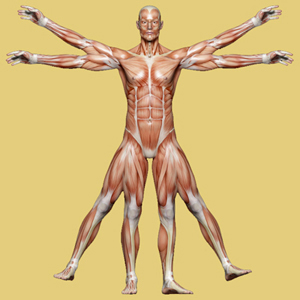






|

Osteopathic Manipulation
Osteopathic Manipulative Treatment (OMT) is a gentle, hands on way of correcting the structure of the body. Osteopathic manipulation
involves manually moving the joints, muscles, and ligaments through their range of motion, in an effort to decrease
pain and muscle tension and increase pain-free range of motion. By keeping all of the bones and tissues of the body
loose and in optimal alignment, the body is able to function and heal at its best.
Osteopathic manipulation is frequently applied to painful conditions including headaches, fibromyalgia, arthritis and sciatica.
OMT can also treat common conditions such as
neck, shoulder, knee, and low back pain resulting from acute and chronic injuries. Many patients with injuries and pain from
auto accidents, work, and sports related injuries benefit from osteopathic manipulation as well. By optimizing the structure
and function of the body, the natural healing process of the body is frequently stimulated to improve other health concerns
the patient may have.
Cranial Osteopathy
Cranial osteopathy is a powerful, yet gentle form of osteopathic manipulation. This technique
works by optimizing the position and function of the bones and membranes of the head. This very gentle form of manipulation
is great for headaches, migraines, TMJ disorders, and other disorders. It is so gentle, and effective, that this approach has been
found to be beneficial for the treatment of infants and children.
Counterstrain
This very gentle technique works with the muscles and connective tissues of the body. Tight,
painful muscles are placed in a position where they are allowed to relax. As a result the body's "pain generators" disappear.
This technique works very well for patients with arm and leg pain. Patients with headaches, low back pain,
fibromyalgia and arthritis frequently see benefit with this technique as well.
Muscle Energy
Muscle energy uses the muscles of the body to realign the bones. The patient is placed in very
specific positions and then presses very gently against a counterforce supplied by the doctor. The patient is
using his or her own muscle force to provide a gentle and effective realignment of their bones.
Myofascial Release
This technique releases the tissue that surrounds all of the body's structures. This gentle
technique is often applied with other osteopathic manipulation techniques to help eliminate chronic pain patterns
from the body. Myofascial release allows the patient to feel pain free for a longer period of time.
Visceral Manipulation
Visceral manipulation is a gentle technique that focuses on the proper function of the
internal organs. This technique involves gentle stretching and balancing of the tension forces that impact the
function of the internal organs. This technique works well for infertility problems, chronic pelvic pain, urinary
incontinence and many other health problems.
Percussion Hammer
Dr. Robert Fulford, an osteopathic physician who once practiced in Tucson, developed the
percussion hammer as an osteopathic manipulation tool. The percussion hammer provides a very gentle percussive
force to the body. The percussive action allows muscles and nerves to assume a more
relaxed, natural position. In fact, patients frequently fall asleep during these treatments. Patients with
rheumatoid arthritis, fibromyalgia and other complex medical conditions frequently benefit and enjoy this technique.
HVLA
HVLA stands for high velocity, low amplitude. This technique uses gentle force to mobilize the joints
of the body. The mobilizing force is gentle but frequently results in a popping sound that can be heard by
the patient. This technique works well for conditions that are not chronic, long-standing problems. While this
technique is highly effective for some conditions, some patients prefer other forms of osteopathic manipulation
and we are always sensitive to these requests.
Still Technique
Dr. Richard VanBuskirk was the osteopathic physician who rediscovered these gentle techniques
used by Dr. A.T. Still. The Still Technique begins by placing the patient in a position where the muscles begin
to relax. Gentle articlular motion is iniated to realign the segment involved. These techniques are deceptively
simple and highly effective.
|

